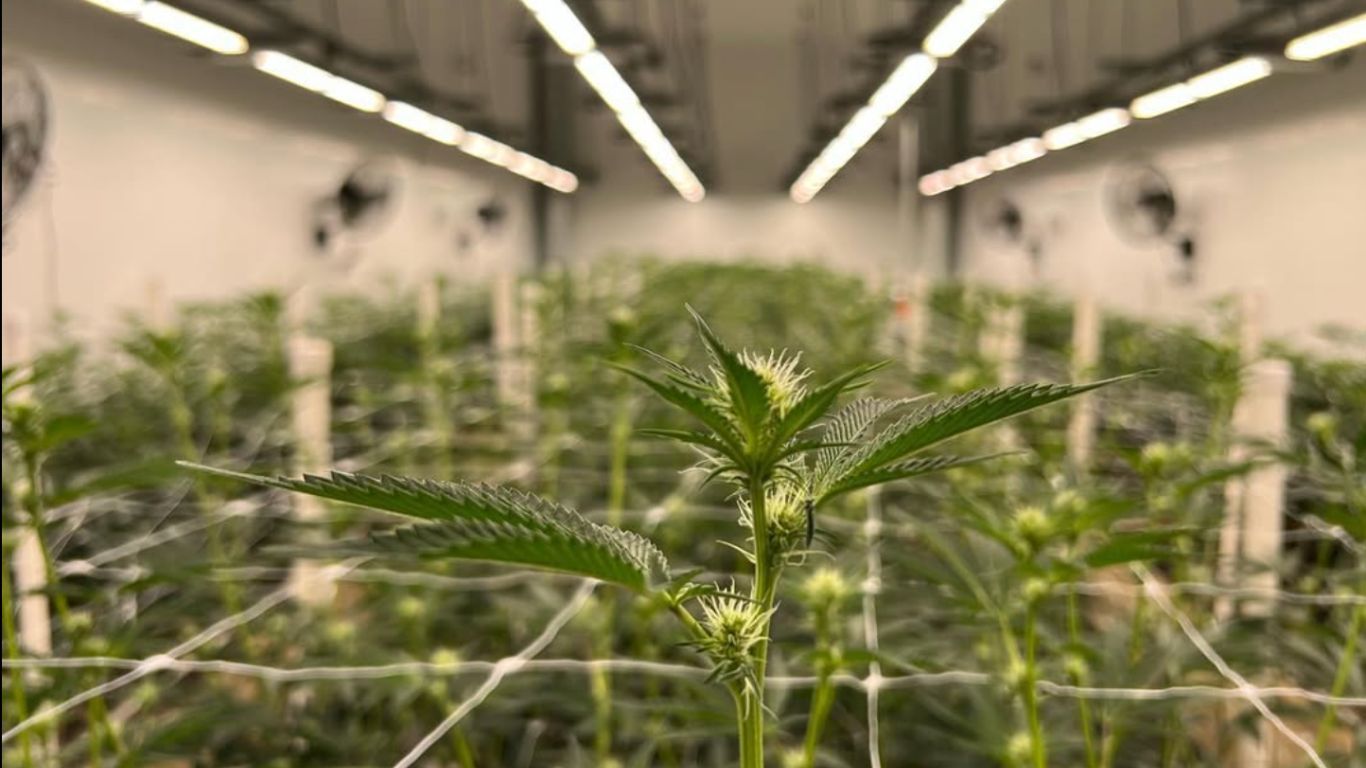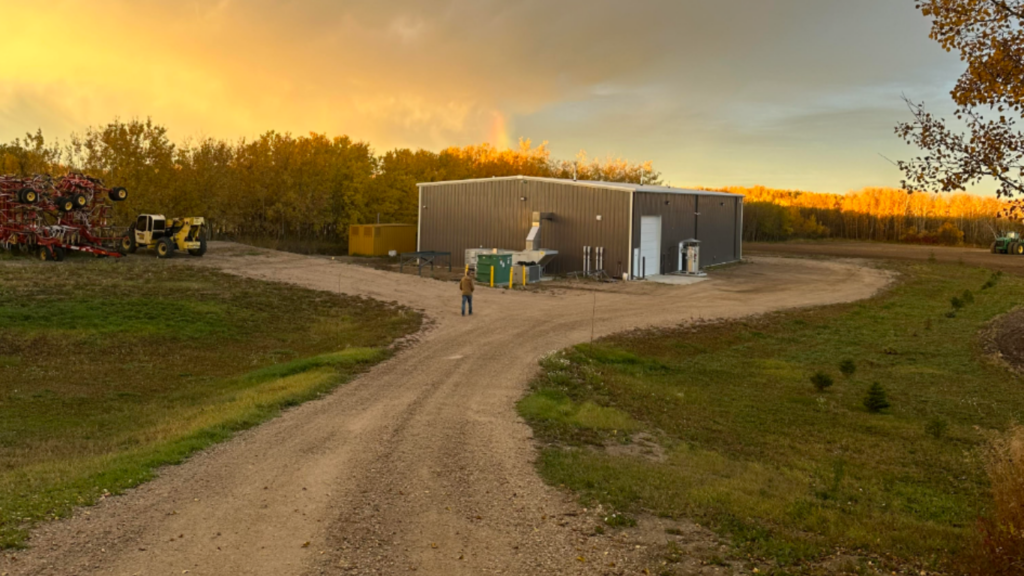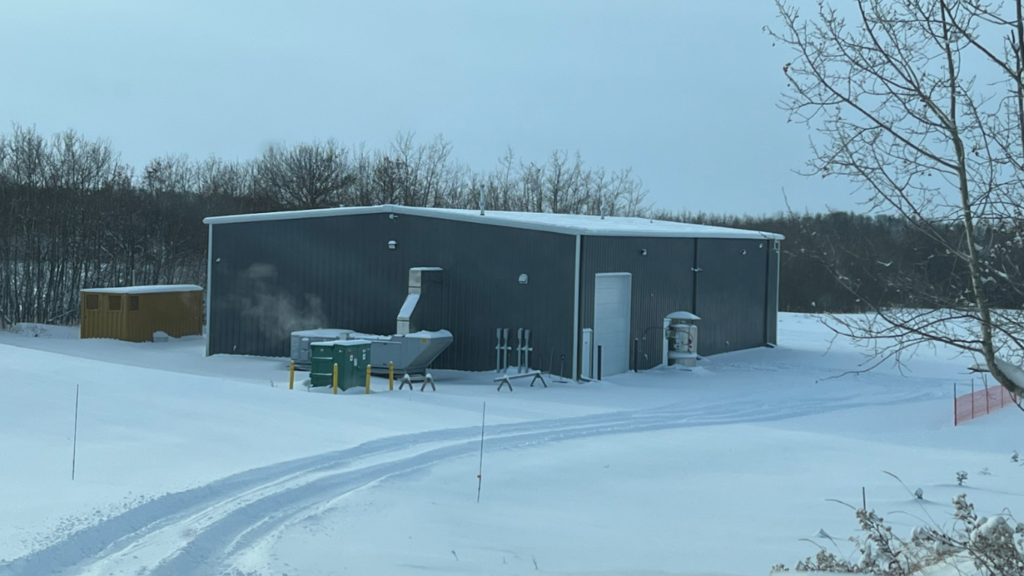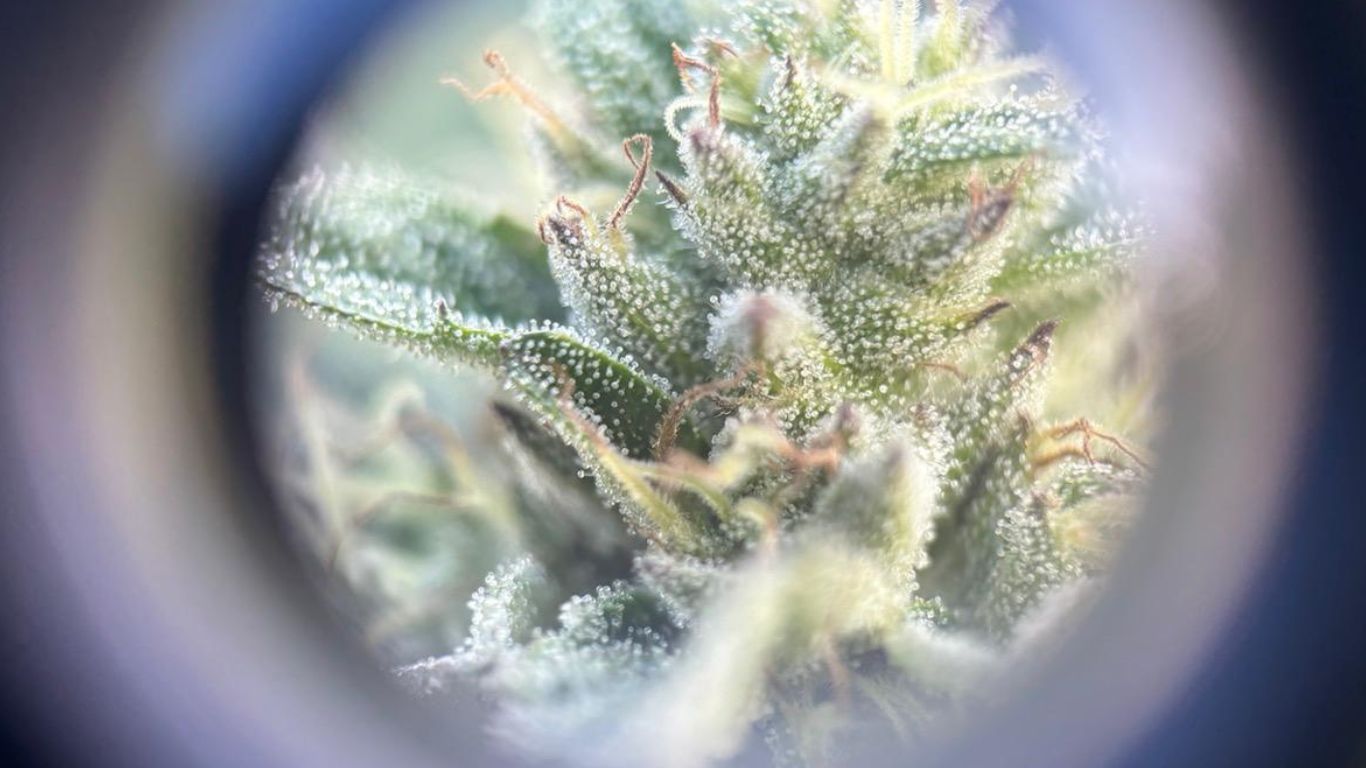
Nestled on one acre on a 1,200-acre farm east of Edmonton sits Green Acre, a micro cultivator run by a small family team in St. Paul, Alberta.
Derek Severin and his brother Clayton began growing their first crops at Green Acre in 2021, selling through third-party partners into the Alberta and Ontario markets. They’re now entering their fourth year of operation, and Derek says he feels they’ve really begun to hit their stride.
The two brothers manage most of the day-to-day operations at the small facility, tending to plants, handling paperwork, connecting with buyers, and keeping the lights on. In addition, the two brothers get help from Derek’s father-in-law, Brent Becker, a shareholder in the company who also helps with tasks like harvest.
The two first began looking at a cannabis cultivation licence around 2017, at a time when they were seeing a downturn in the oil patch where they both worked. They had a passion for cannabis, explains Derek, and were looking for a career change. With legalization on the horizon, they began looking into different licence types and decided to pursue a micro licence.
This was partly because of the lower cost of such a licence and also because Severin felt this would allow Green Acre to focus on a high-quality product. He says this has allowed them to not only stand out in the market but even thrive in a time when many in the industry are facing challenges.
“We really focus on quality over quantity and that’s worked out really well for us,” says Severin. “We also do everything by ourselves, and we like it that way to maintain quality.”
Part of that focus on quality has been learning how to master living soil in their three 700-square-foot flowering rooms. Severin, who operates as Master Grower at the company—one of the many hats he and his brother wear—says he became interested in living soil and has found it has lived up to the hype in terms of quality, especially once he and his brother got over the initial learning curve.
“We made the decision to grow in large raised beds,” he explains. “We’ve seen others making it work commercially and it was something we wanted to learn. That was quite a learning curve, and it took about a year and a half to really understand that and begin to dial that in. But once we did, I think we’ve just hit the ground running. And the market is reflecting that, I think. People really seem to like what we grow.

“It’s a way for us to stand out in the market, and we’ve found that the plants tend to thrive and find their full potential, with deeper flavours and very smooth smoking and clean effects.”
It wasn’t always easy, though. Due in part to that initial learning curve, they were often lucky to just break even in the first few years. But in 2024 they began seeing a real shift in the market, with prices becoming a little more reasonable.
“It was pretty tough to survive the first two years. We were selling at around our cost, or just below it, just to be able to pay the bills. But more recently, we’ve seen more demand at better prices. I attribute that to our focus on quality and getting to where we want to be with a quality product.
“About nine months ago, we felt a change in the market. Before that, we were really struggling. It was tough, with price compression being right around what it costs us to produce. Then about nine months ago we just saw a real uptick in demand.”
Currently, Green Acre sells its products through third-party partners in Alberta and Ontario, including Peachey Keen, Slurricake, AK Funk, and Gastropop.
Severin says staying small-scale is part of the key to their success. Although it’s been difficult, he says he would gladly do it all over again, especially with some of the increased interest in craft quality product and a slight increase in wholesale prices.
“Even just an extra fifty cents a gram can make a big difference. It’s been extremely hard. But if I knew we could be where we are today, yes: I would absolutely do it again.”
“I think there will always be a place for the small batch guys. We only put plants in our rooms we know we can tend to. And it’s really tough to do the quality we’re doing on even a medium size scale. So I think we’re growing on another level than a lot of the bigger guys and there will always be a consumer looking for that extra level.”












